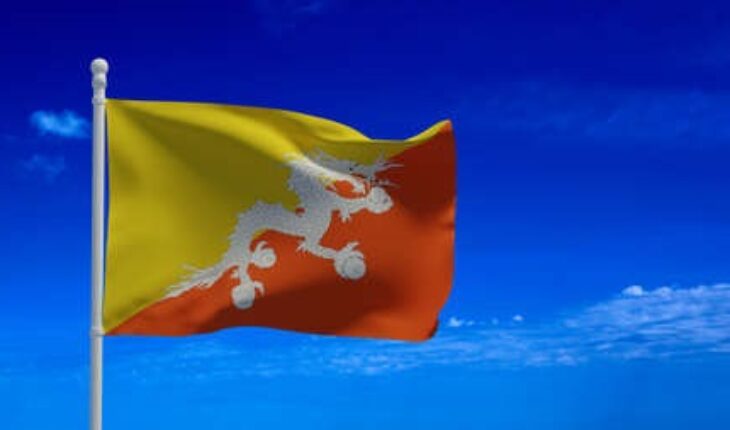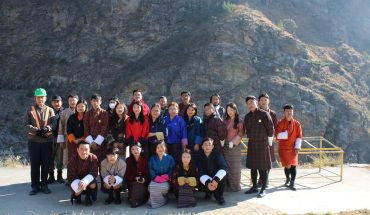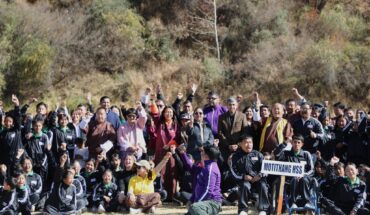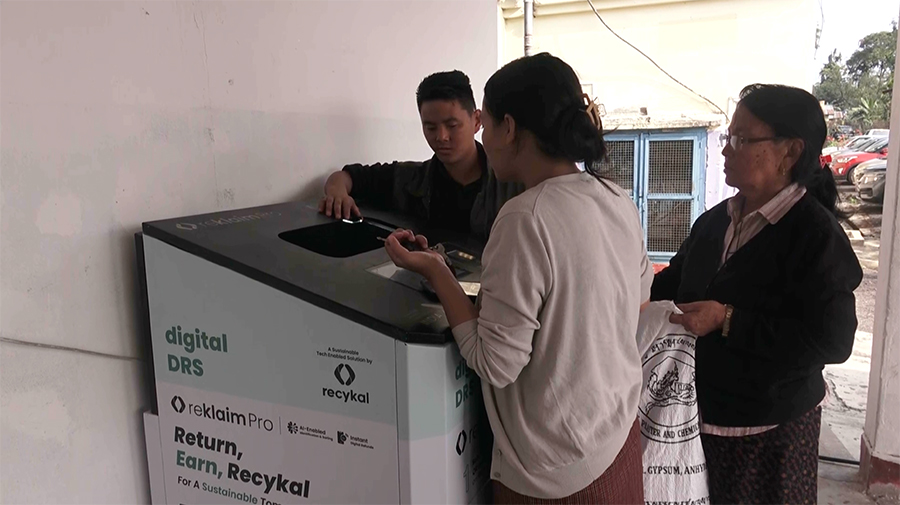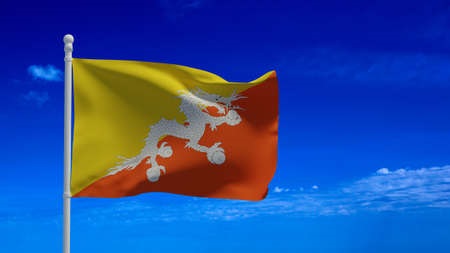
As Druk Yul’s biggest national celebration gathers pace, all Bhutanese hearts are already tending towards the country’s cultural heartland in breathless anticipation of the historic 118th anniversary of our momentous National Day. The hallowed grounds of the majestic Wangdichhoeling Palace are being groomed and decked out to match the high profile of the event that the god-blessed Bumthang Dzongkhag has received the rare privilege of hosting.
This idyll, this precious piece of paradise on earth, this sacred valley of myriad myths and legends is suspended, at once, between the ineffable layers of mystery and the twists and turns of its chequered history even as it animates and sustains the pulse of our beloved Druk Yul. The human and the divine, the natural and the spiritual merrily merged and flourished in this chosen haunt of the blessed.
This valley of rare gifts stands out as the first port of call for the Lotus Born who brought the sacred gift of the Enlightened Buddha to Bhutan in the 8th century AD and ushered in the blessings of Buddhism in a realm largely attuned to Bonism. Rare spiritual masters like Longchenpa and Pema Lingpa flourished here and over time Bumthang became the bulwark of Bhutan’s unification. The valley is home to some of the country’s most ancient and sacred temples of the stature of Jambay Lhakhang, Kurje Lhakhang and Tamzhing Lhakhang as well as the seat of the mystical Burning Lake.
Sacred legacies of Guru Rinpoche and Zhabdrung Rinpoche and King Songtsen Gyampo have spread from Bumthang and continue to inform and guide the outer and inner life of the country while stories of Sindhu Raja and Chakhar Gutho Palace, Langdarma and significant others weave the incredible saga of the valley of great abundance and breath-taking beauty as the name ‘Bumthang’ implies.
The enviable status and national significance of Bumthang derive from the valley’s ancient history and timeless heritage in more ways than can be described by a lay person like myself. Bumthang is the sacred cradle of Bhutan’s precious Wangchuck Dynasty that has been the vital life-force and sustained blessing to the country.
Over the years, Bumthang has witnessed unprecedented progress in all spheres of its collective life in tandem with the transformative changes that have taken place in the country since planned economic development was initiated in the 1960s. Often dubbed ‘the Switzerland of the East’, the valley has emerged as a destination of choice for travellers and visitors from around the world thanks to its incredible natural beauty, rich cultural heritage, and profound spiritual vibrations.
Service delivery infrastructure including communication facilities, health and education services, agriculture and livestock enhancement support, and a variety of income-earning avenues provided by the royal government have made a visible difference to the lives of a hard-working and progressive community that the Bumthaps are.
Bumthang was the first dzongkhag in the country to achieve 100% enrolment and cross the MDG threshold way back in 2012 close on the heels of Punakha as the Ministry of Education aimed to enrol ‘the last child in the last hamlet’ in fulfilment of our Constitutional mandate and international treaty obligations.
Incidentally, Bumthang was also the country’s second dzongkhag to launch a secular school, after Haa, in 1913, to provide modern liberal arts education to prepare the citizens to play their role in the building of a forward-looking, progressive Bhutan. By all counts, this richly endowed dzongkhag is on course to achieve the SDGs as well.
Presence of important national institutions including the Vocational Training Institute, the Ugyen Wangchuck Institute for Forestry Research and Training, the recent launch of a private Nursing College, among other manufacturing and production facilities, as indeed the establishment of the domestic airport have augmented the profile and productivity of the gifted valley.
It is in the supreme fitness of things that the auspicious celebration of the historic 118th edition of our important National Day will take place in the history-soaked environs of the sacred Wangdichhoeling Palace, built by the peerless Gongsa Jigme Namgyal, illustrious father of Bhutan’s first King, His Majesty Ugyen Wangchuck.
This year’s celebration gains exceptional significance as 2025 marks the auspicious 70th birth anniversary of Bhutan’s King of Destiny, His Majesty Jigme Singye Wangchuck, who has been a most far-sighted and passionate preserver of the country’s rich culture and heritage while ensuring a steady and sustainable path to national development against the backdrop of a visionless world and ailing Planet Earth.
Revered Drukgyal Zhipa placed the larger interests of the country above all else and went to extraordinary lengths to safeguard the sovereignty, security and well-being of Bhutan against great odds – unconcerned about His own safety and extreme personal risk.
As we celebrate the historic occasion, the least we can do, as the fortunate citizens of this beloved Druk Yul, is to be worthy, in peace-time, of our selfless King’s extraordinary deeds and sacrifices in times of war. Without the foresight, clarity of thought, and exceptional courage of a self-effacing leader, the Bhutan we live in today might have been a different country altogether.
On National Day, we look outward to look inward and measure up to the call and face the moment of truth. After all, as I am, so is my nation. It is one thing to be born and live in Bhutan; quite another to have Bhutan live in us and flourish through us.
We stand on the cusp of a consequential moment in our history. Our beloved People’s King, Druk Gyalpo Jigme Khesar Namgyal Wangchuck, has brought us to the sunnier side of the street past the scourge of the Covid-19 pandemic just as His Majesty The Great Fourth delivered us from a great national crisis in the early 2000s.
The royal vision of the spectacular Gelephu Mindfulness City is a historic call like no other. As His Majesty has so often reminded us, it is a People’s Project – with monumental implications for the future well-being of our people and the long-term sustainability of our country. It is a virtuous invitation to a brave new Bhutan that seeks to harmonise the timeless wisdom of our hallowed culture and rich spiritual heritage with the finest fruits of modern innovation and enterprise.
It has been my fervent prayer from the moment His Majesty announced the visionary project that the royal dream materialise and lead to full fruition from end to end down to the last detail. May the exceptional leadership and untiring hard-work of our beloved Druk Gyalpo be blessed and a bright and prosperous future unfold for Bhutan in the image conceived and shaped by our Bodhisattava King.
I have noted, in humility and prayer, that the defining word in our precious national project is MINDFULNESS. This profound descriptor of our cherished CITY speaks to the all-time, all-embracing, indestructible integrity of our national project. Mindfulness is a virtue that redeems the errant imperfections of humans and elevates the work-a-day ordinariness to the level of the noble and the edifying.
A city built on the principle of mindfulness, a society fashioned on the foundations of justice, and a nation envisioned on the ethics of truth will be impregnable and indestructible – never mind the size or circumstances.
National Day is a time for reflection, thanks-giving, and prayers. It is a moment to look into our soul and to listen to our inner voice, the voice of our conscience, and ask: How do I relate to my nation? To its sovereign self? To its inner life? How mindful am I in relation to my country? In relation to my fellow-citizens? In relation to the Tsawa-sum?
On National Day, we call up our undivided, integral self, and ask ourselves if we behave as the Milu Rinpoche that we are supposed to be! As small as we are as a nation and as a people, being mindful in our thought, speech and action will make us assets, not liabilities, to our society and to our country.
Being mindful means matching our individual action with our public proclamations; it means harmonising our outer show with our inner glow. If all of us, citizens of this beloved country, think alike and work in harmony, live free from corrosive prejudices and questionable standards, and conduct ourselves mindfully, we will build a city that is mindful, create a society that is mindful, and evolve a nation that is mindful.
This is the only Bhutan we have. Let’s so build it that we will be proud to leave behind for our children and their children and beyond…
This National Day, as always, I pray to the guardian deities of our dear Druk Yul to bless and watch over our precious Tsawa-Sum, forever and ever.
Thakur S Powdyel
Former Minister of Education.

